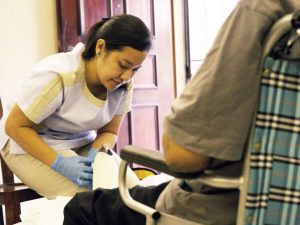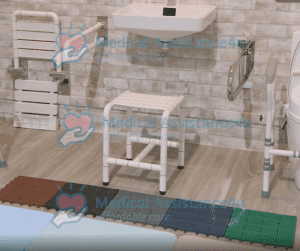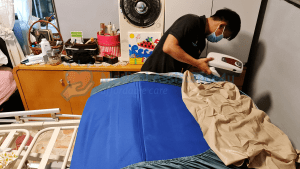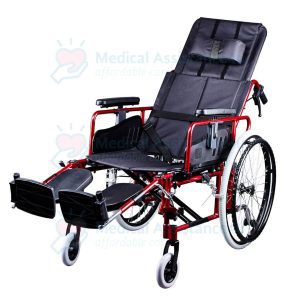A Step-by-Step Guide: Caring for Handicapped Elderly at Home
- Medicalassistance4u
- December 16, 2022
- Bathroom Assistive, Bedroom Assistive, Caregiving, Financial Assistance, Wheelchair
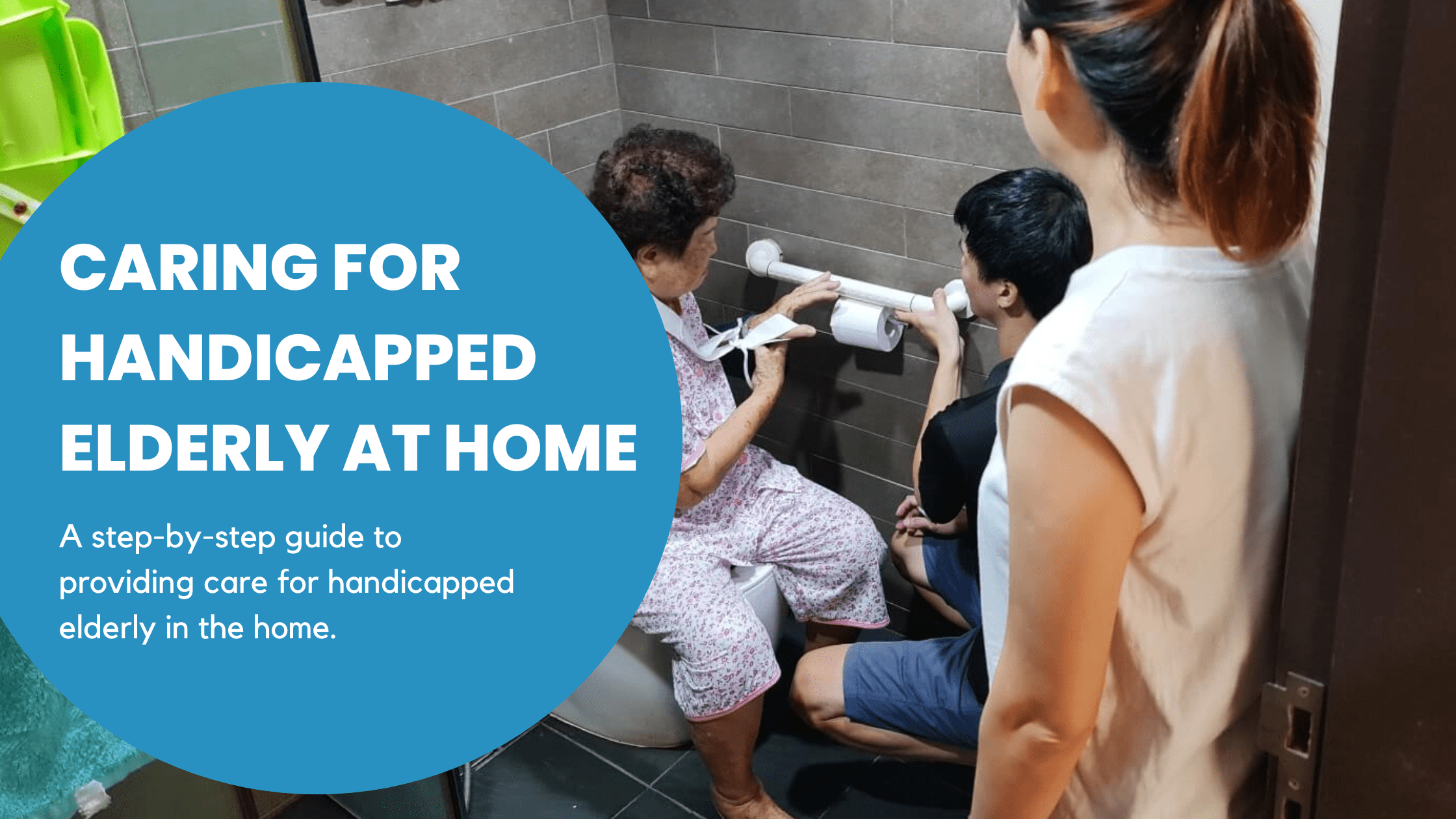
Although Singaporeans are living longer, those aged 60 and above are likely to spend 3 to 8 years with some form of handicap or disability. Physical disabilities make up half of the disability group. The other half consists of sensory (hearing and visual disabilities) and intellectual disabilities.
Our loved ones may suffer from some form of disability in their lifetime and require our help in the home. Read on for steps you can take and some resources for support.
1. Get informed
Understanding your loved ones’ condition will help you provide care and support that is most suitable for them.
Gathering information and doing research about their condition increases knowledge and will enable the caregiver to make good health decisions for them. It also allows caregivers to discuss matters involving caretaking with other family members.
2. Decide on how to provide care
The kind of care that will benefit your loved one the most depends on the type and severity of their disability.
Here are some options to consider.
Hiring a stay-home helper
This ensures your loved one receives the attention and care they need, while easing the pressure of caretaking on your and your family members.
If you are looking to hire a foreign domestic helper, the Foreign Domestic Worker Levy Concession (FDWLC) and Home Caregiving Grant (HCG) may provide some financial support.
It should be noted that not all stay-home helpers are trained to care for elderly with disabilities. Should training be required, the Caregiver Training Grant can help to offset some of the cost.
A live-in caregiver with nursing aide training is another option. However, their scope of responsibility focuses on taking care of the care recipient. They are not responsible for household chores and cost more to hire than a foreign domestic helper.
Going for training
Training is an avenue where caregivers can equip themselves with proper technical skills to make sure they are providing the right care for their loved ones. This is especially important if your loved one has medical needs or behavioural challenges.
The Caregiver Training Grant can be used to help cover costs of caregiver training courses attended by family caregivers and foreign domestic helpers. These courses teach about care tasks, behaviour and condition management and stress management among many others.
Engaging home-based care services
For elderly with severe disabilities, home-based care services are best suited to them.
Home-based care services include home visits by a staff from a social service agency. They offer support through therapy, personal hygiene care, medication reminders, housekeeping and training in daily living skills.
Home-based care services allow the elderly to continue living within their community and allows the primary caregivers some rest from caregiving.
3. Get support
The support provided by friends and family in various ways can alleviate some stresses of caregiving.
Do not be afraid to reach out to your support system when you need to. Oftentimes, these people want to help and support you. Determine if there are aspects of caregiving where they can assist in, whether they be big or small.
Other sources of support are health care providers, support groups, community services and counsellors.
4. Determine the necessary home modifications and assistive equipment
To make daily living easier and safer for elderly with disabilities, caregivers can consider getting assistive equipment and making minor modifications to certain areas of the home.
Bathrooms
Bathrooms are areas commonly hazardous for the elderly. Luckily, there are simple ways to create a safer toilet environment.
Installing grab bars and loo supports increase the points of support the elderly have available to hold on to. This reduces the likelihood of bad falls in the toilet.
Anti-slip mats and rapid absorb mats reduce the chances of slipping by keeping the standing areas in the bathroom dry.
Bedrooms
For elderly who are bedbound or spend a large amount of time confined to their beds, using bedroom assistive equipment can help greatly.
This article provides an indepth look at how caregivers can support elderly with such needs. In brief, these are some equipment that might be helpful to the care recipient and the caregiver’s experience:
Wheelchairs
If your loved one’s mobility is limited, wheelchairs can be used to transport them around the house or outside the home. The elderly can be transferred from their bed onto a wheelchair and vice versa safely.
Choosing a wheelchair involves many considerations. As such, it is best to thoroughly understand your loved one’s needs before deciding on the type of wheelchair to use.
Medical Assistance4u provides consultation services and can help you decide which equipment is best for your needs.
5. Consider financial assistance
The costs of caring for elderly with disabilities can add up. When needed, financial assistance should be utilised as a caregiving tool as well.
Here are some resources for financial schemes that support caring for people with disabilities:
6. Take care of yourself
Taking care of yourself is crucial to providing care for others. This is sadly often overlooked.
The physical and emotional health of the caregiver must be looked after even when they are taking care of someone else. Some simple ways to practise this are exercising regularly, sleeping enough, eating well, pursuing hobbies and socialising.
Do not be afraid to ask for support (be it emotional or physical) from friends and family when needed.
At Medical Assistance4u
Our team of medically trained staff at Medical Assistance4u can provide you with consultation services to assist you in providing good bedbound care for your loved ones.
Our nurses do home visits where they guide helpers on how to properly care for the elderly. delivery services for daily needs products are also available. This allows stay-home helpers to focus on housekeeping caring for the elderly.
We have a range of assistive equipment to support caregivers and ensure they are working in safe and comfortable conditions.
We also provide wheelchair bus transportation and a range of wheelchairs within Singapore.



